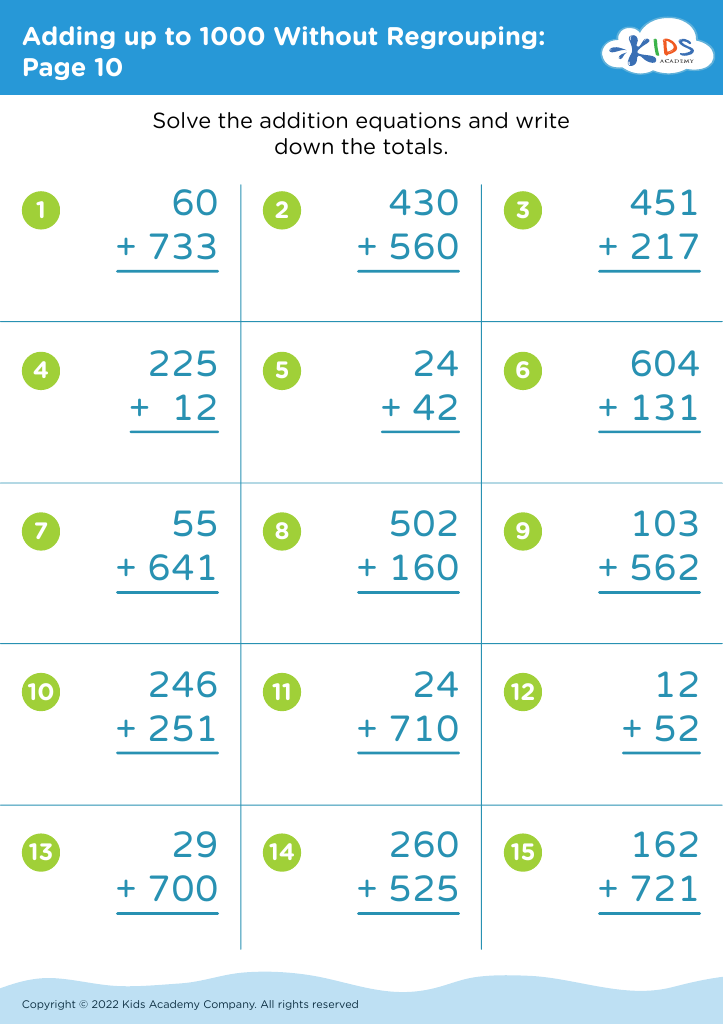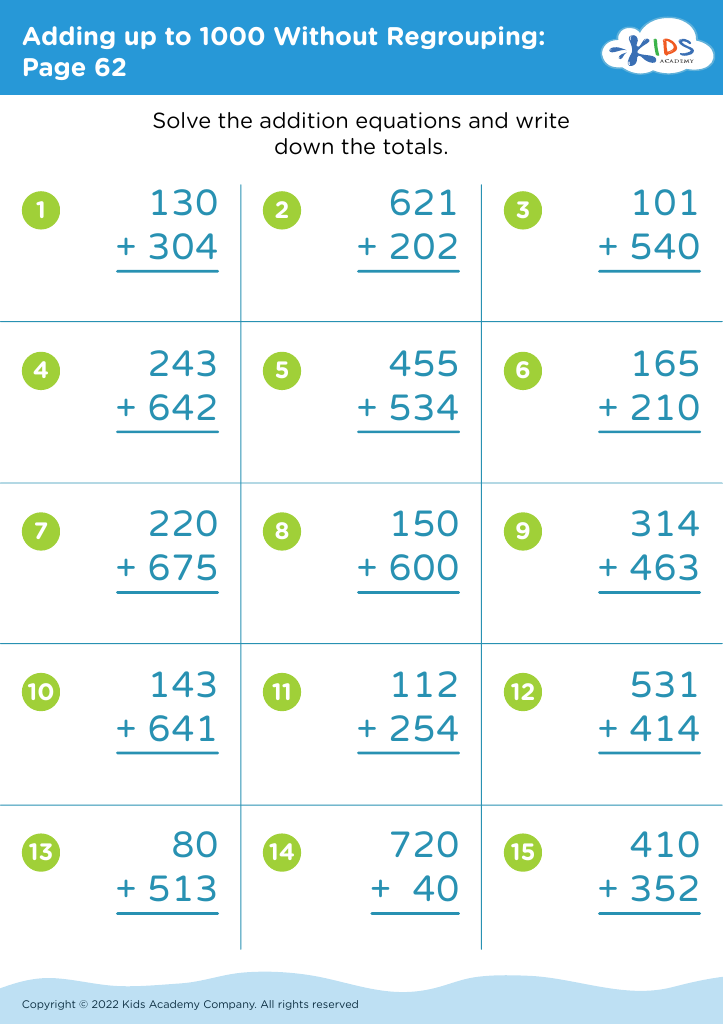Basic Math Skills Adding up to 1000 Without Regrouping Worksheets for 7-Year-Olds
3 filtered results
-
From - To
Our "Basic Math Skills: Adding up to 1000 Without Regrouping Worksheets for 7-Year-Olds" are expertly designed to bolster your child's addition skills in a fun and engaging way. Ideal for young learners, these worksheets focus on addition problems that add up to 1000 without the need for regrouping, providing a solid foundation for future math skills. With a range of activities that encourage practice and improvement, your 7-year-old will gain confidence and proficiency in basic math. Perfect for both classroom and home learning, these printable resources make math practice easy and enjoyable. Download now and watch your child's skills grow!
Basic math skills, particularly adding up to 1000 without regrouping, are vital for 7-year-olds as they lay the groundwork for more advanced mathematical concepts and essential everyday problem-solving abilities. At this age, children are typically in the second grade and are developing their numerical understanding and mental math capabilities.
Establishing a strong foundation in basic addition enables children to approach arithmetic with confidence and accuracy. Mastery in adding up to 1000 without regrouping helps kids recognize number patterns, improves their ability to estimate, and enhances their computational fluency. These skills are crucial as they advance to more complex operations, such as addition with regrouping, subtraction, multiplication, and division.
Furthermore, early proficiency in basic math fosters a positive attitude towards learning math, reducing anxiety and promoting a growth mindset. Teachers and parents can support this development by providing structured practice and encouraging problem-solving in a fun and engaging manner.
Additionally, these foundational skills are not limited to the classroom; they are essential for daily tasks, such as counting money, telling time, and following recipes. Therefore, investing time and attention in helping children grasp these concepts can have far-reaching effects on their academic success and everyday competence.















